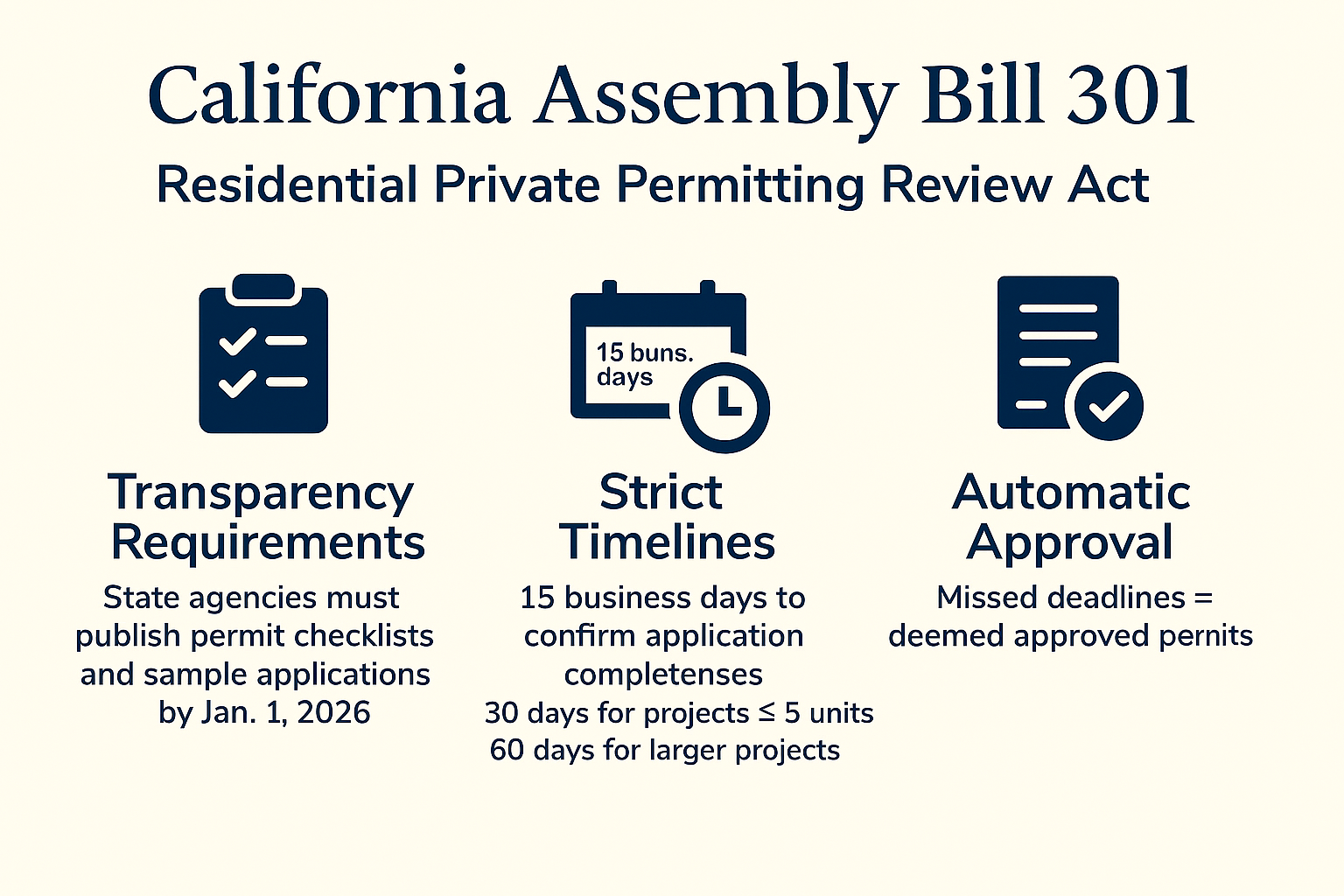What Are Post-Entitlement Phase Permits?
Post-entitlement phase permits are approvals required after a housing project has received its initial entitlement (zoning and planning approval) but before construction can begin. These include:
- Building permits
- Grading permits
- Utility connection approvals
- Environmental compliance reviews
Previously, these timelines applied only to local agencies. AB-301 now extends them to state departments involved in housing development approvals.
Key Provisions of AB-301
· State Agency Compliance
State departments must follow the same rules as local agencies for processing post-entitlement permits.
· Information Transparency
By 1 January 2026, state agencies must:
o Publish a list of required application materials.
o Post examples of complete applications and permit sets for at least five housing project types on their websites.
· Strict Review Timelines
of 15 business days to determine if an application is complete.
o 30 business days to review permits for projects with 25 units or fewer.
60 business days for larger projects.
· Automatic Approval for Missed Deadlines
If a state agency fails to meet these timelines, the permit is deemed approved, and all related reviews are considered complete.
· Scope of Application
Applies to developments that are at least two-thirds residential, excluding specific environmental and water quality permits. This provision ensures that the bill’s benefits are targeted towards residential housing projects, while still allowing for necessary ecological and water quality oversight.
· Appeals Process
Applicants can appeal decisions to the agency’s governing body, with resolution required within 60–90 business days, depending on project size.
Impact on Housing Development
- Accelerates Construction: Eliminates state-level bottlenecks that often delay housing projects for months.
- Parity Across Agencies: Creates consistency between local and state permitting processes.
- Supports Fire Recovery: Particularly critical for rebuilding in wildfire-affected areas where delays have hindered recovery.
Criticism and Concerns
- Environmental Oversight: Critics worry expedited timelines could compromise ecological reviews.
- Agency Capacity: State departments may struggle to meet deadlines without additional resources.
- Community Engagement: Faster approvals may reduce opportunities for public input and engagement.
Why It Matters
California is currently facing a severe housing shortage, with median home prices near $900,000 and rents exceeding $2,600/month. However, there is hope on the horizon. AB-301, with its aim of streamlining regulations, expediting housing production, and providing certainty for developers, could be a game-changer. It strikes a balance between accountability and transparency, offering a potential solution to the housing crisis.
Resources
✅ What I delivered:
- Clear explanation of AB-301 and its purpose
- Key provisions and timelines
- Impact analysis and criticisms
- Credible sources for further reading
